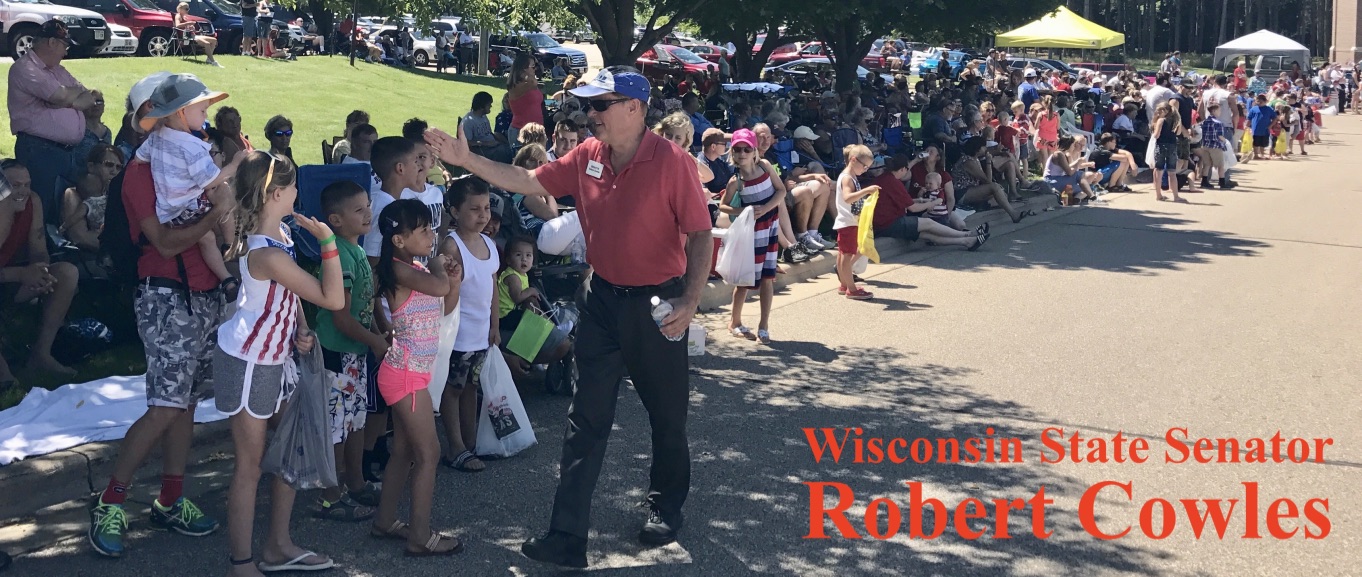|
Robert Cowles
Serving Wisconsin's 2nd Senate District
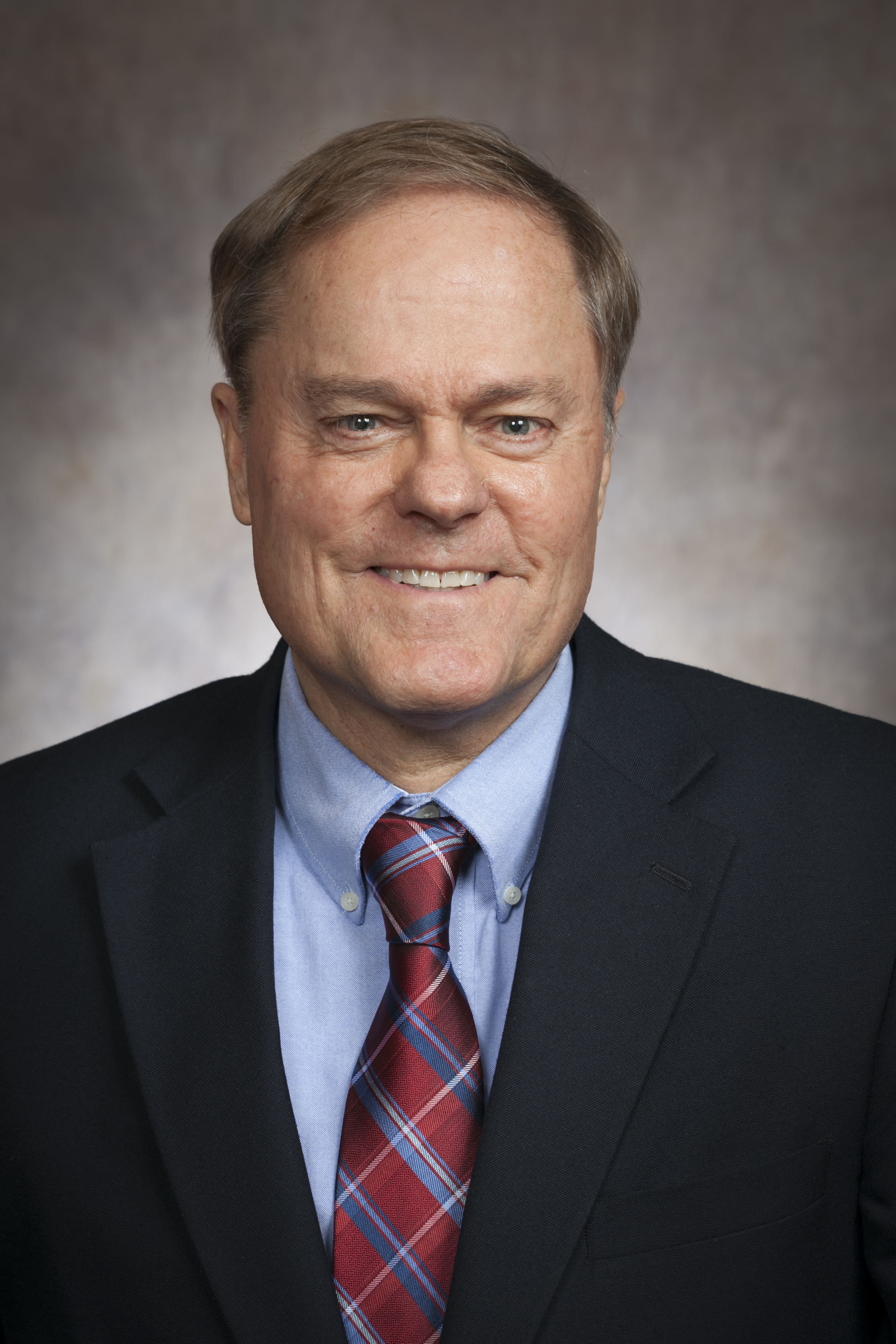



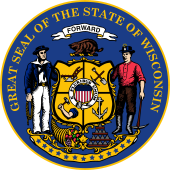

|
|
Banner Photo |
|
The banner photo on the top of this E-Newsletter was
taken during the Independence Day Parade in Bonduel. The
4th of July is a great reminder to celebrate
the freedoms we sometimes take for granted, and to thank
those who have sacrificed to defend our freedom.
|
|
Quick Fact |
|
In May, Green Bay had an unemployment rate of 2.8%. That
is the lowest rate ever recorded for the city!
|
|
Helpful Links |
|





|
|
|
H.O.P.E.
Agenda Provides Promise for Addicts |
|
Recently, Governor Walker signed 11 bills to combat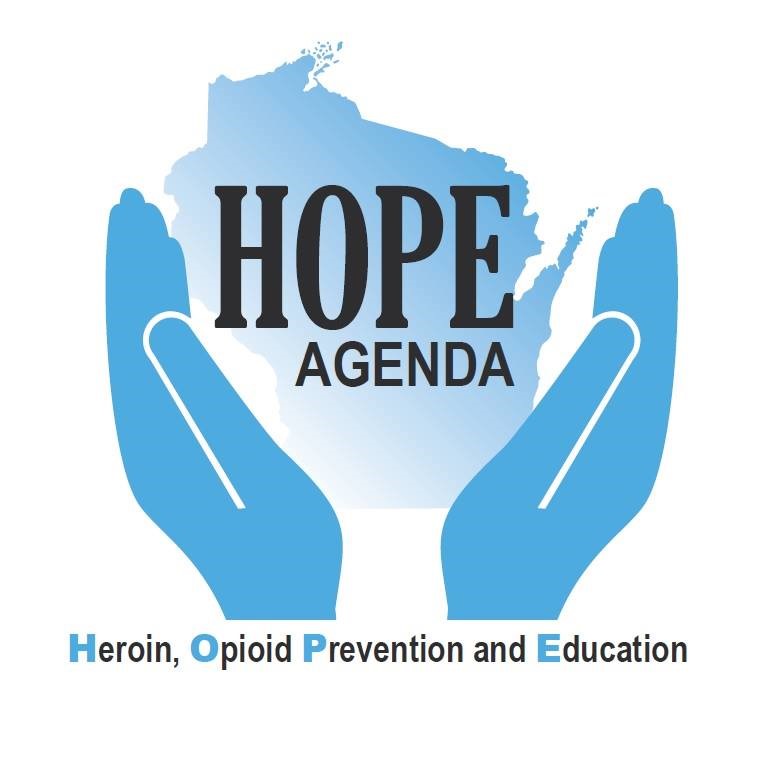 heroin and opioid abuse in Wisconsin. These bills, which
are part of the H.O.P.E. Agenda, focus on getting
addicts help. In 2014, more Wisconsinites died from drug
overdoses than motor vehicle accidents. From 2004 to
2014, the number of drug overdose deaths doubled, and in
2014 nearly half of the 843 drug overdose deaths were
from prescription opioid pain relievers. Wisconsin is
facing a drug epidemic.
heroin and opioid abuse in Wisconsin. These bills, which
are part of the H.O.P.E. Agenda, focus on getting
addicts help. In 2014, more Wisconsinites died from drug
overdoses than motor vehicle accidents. From 2004 to
2014, the number of drug overdose deaths doubled, and in
2014 nearly half of the 843 drug overdose deaths were
from prescription opioid pain relievers. Wisconsin is
facing a drug epidemic.
The opioid crisis in Wisconsin is a widespread problem.
Thousands of Wisconsinites are impacted every day by
their addictions, and countless more are impacted by
their friends or family member’s dependence. The H.O.P.E.
Agenda is a critical step forward in addressing this
problem. I was the co-author of several of these bills,
and am happy to see this agenda pass through the
legislature and the Governor with strong, bipartisan
support.
The bills that were signed into law include:
-
2017 Act 25 which requires a prescription for
certain Schedule V controlled substances;
-
2017 Act 26 which allows hospitals to receive grants
for addiction medicine fellowship or residency
programs;
-
2017 Act 27 which requires the Department of Health
Services (DHS) to add an additional two or three
opiate and methamphetamine addiction treatment
centers in rural, underserved, or high-need areas;
-
2017 Act 28 which requires DHS to establish an
addiction medicine consultation program for
physicians;
-
2017 Act 29 which allows school bus drivers,
employees, and volunteers as well as college or
technical college residence hall directors with
proper training to administer an opioid
antagonistic, such as naloxone or Narcan, to those
who appear to be experiencing an overdose;
-
2017 Act 30 which permits the director of the Office
of Educational Opportunity to contract for operation
of a recovery charter high school as a four-year
pilot project;
-
2017 Act 31 which requires the Department of Public
Instruction to establish a mental health training
support program;
-
2017 Act 32 which increases funding for the
Treatment Alternatives and Diversion grant program
by $2 million annually;
-
2017 Act 33 which expands the “Good Samaritan Law”
to provide immunity to an individual who calls 911
for a person experiencing an overdose;
-
2017 Act 34 which allows people with a drug
dependency to be committed under the process for
those with alcohol dependency, and;
-
2017 Act 35 which allocated four additional
positions to be used for drug trafficking in the
Department of Justice.
For more information, click on the below:

|
|
GLRI
Funding is Vital in the Fight against Asian Carp |
|
The Great Lakes are a national treasure. Home to 20% of
the world’s fresh surface water, the Great Lakes supply
1.5 million jobs, $62 billion in annual wages, and
drinking water for 30 million people. The federal Great
Lakes Restoration Initiative (GLRI) has been a critical
component in maintaining and increasing the prosperity
of the Great Lakes. With $331 million supporting 416
projects in Wisconsin since 2010, the GLRI has generated
$2 in economic return for every $1 spent.
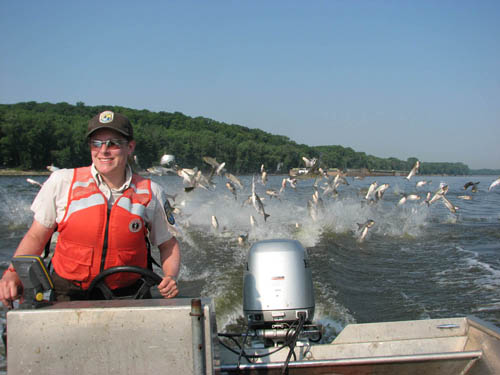 Recently,
an
Asian Carp was found
beyond the electric barrier in the Illinois Waterway and
less than ten miles from Lake Michigan. With this
discovery, a significant threat to the Great Lakes could
be on the horizon. Annually, $40 million is transferred
from GLRI to the Asian Carp Regional Coordinating
Committee to stop this threat. The money from GLRI has
helped to establish the electric barrier, coordinate
rapid response, and harvest millions of pounds of Asian
Carp annually from the Illinois Waterway. The federal
government’s financial commitment pales in comparison to
that of state and local governments, but is crucial to
the long-term health of the Great Lakes. At a time where
the Great Lakes are improving but threats still remain,
reducing federal funding to Great Lakes restoration
should be viewed as nothing less than reckless. Recently,
an
Asian Carp was found
beyond the electric barrier in the Illinois Waterway and
less than ten miles from Lake Michigan. With this
discovery, a significant threat to the Great Lakes could
be on the horizon. Annually, $40 million is transferred
from GLRI to the Asian Carp Regional Coordinating
Committee to stop this threat. The money from GLRI has
helped to establish the electric barrier, coordinate
rapid response, and harvest millions of pounds of Asian
Carp annually from the Illinois Waterway. The federal
government’s financial commitment pales in comparison to
that of state and local governments, but is crucial to
the long-term health of the Great Lakes. At a time where
the Great Lakes are improving but threats still remain,
reducing federal funding to Great Lakes restoration
should be viewed as nothing less than reckless.
I personally have worked for years on bipartisan efforts
to improve the Great Lakes by authoring proposals to
eliminate plastic microbeads, combat the invasive sea
lamprey, and create a phosphorus multi-discharger
variance to reduce non-point source pollution. With
these efforts and the restoration projects in the Lower
Green Bay and Fox River Area of Concern, economic
prosperity is returning to the bay. However, if Asian
Carp establish in Lake Michigan, they could thrive in
Green Bay and contribute to the destruction of our
fishing and tourism industry while potentially impacting
drinking water and human health.
|
|
Amending
the Plan to Replace GBCI |
|
Some of you may have seen the recent
news stories
regarding a plan to replace the Green Bay Correctional
Institution (GBCI) in Allouez. After opening as the
Wisconsin State Reformatory in 1898, the Institution has
served the state of Wisconsin exceptionally well for
over 100 years. Earlier this year, a plan was introduced
to sell the existing facility and replace the prison
with a privately built, publicly staffed facility in
Northeast Wisconsin.
The plan,
2017 Senate Bill 228, creates a path to construct a
modern corrections center that meets the needs of our
state, and
my amendment ensures the
state has more oversight during this process. The
amendment I have introduced strengthens Senate Bill 228
by including current state building procedures and
additional safeguards to add more accountability and
transparency. I look forward to hearing more debate and
input from community members, stakeholders, and
legislators on this proposal going forward.
|
|
Bill to
Combat Child Neglect Highlighted on NBC15 |
|
NBC15 Madison recently did a story on a bill I am
working on with Representative Cody Horlacher, Attorney
General Brad Schimel and a wide variety of stakeholders
to combat child neglect in Wisconsin. Children,
especially young children, are completely reliant on
their parents. Unfortunately, many parents are
neglectful in their care, leaving children hopeless and
often in danger.
In 2015, 3,282 reported cases of child neglect were
substantiated, and over the last 10 years, 214 children
have died as a result of maltreatment. This bill we’ve
authored gives law enforcement the tools they need to
protect children by defining clearer criminal statutes
and penalties. To learn more about the bill and hear
about the struggle one parent went through to remove
their child from a neglectful caretaker, view the story
by clicking on the image below.
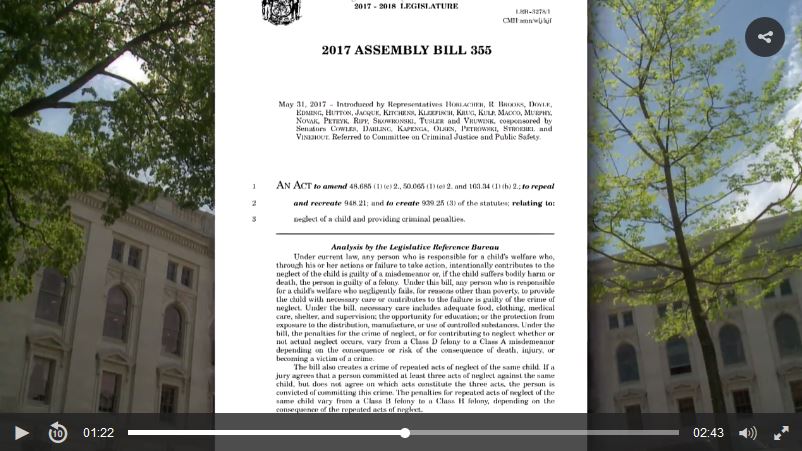
|
|
Universal Service Fund Audit Release |
|
Recently, the Legislative Audit Bureau released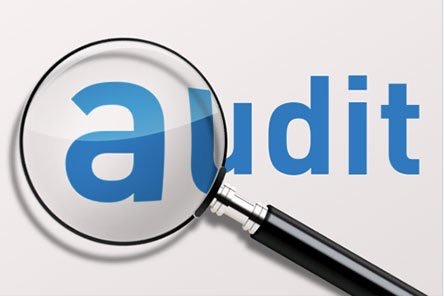 their audit of the Universal Service Fund (Fund), which
is run by the Public Service Commission (PSC). The Fund
was established in 1993 to ensure that all residents of
Wisconsin receive essential telecommunications services
and have access to advance telecommunication service
capabilities. The Fund is funded by assessments on
telecommunications providers that are typically
recovered from consumers.
their audit of the Universal Service Fund (Fund), which
is run by the Public Service Commission (PSC). The Fund
was established in 1993 to ensure that all residents of
Wisconsin receive essential telecommunications services
and have access to advance telecommunication service
capabilities. The Fund is funded by assessments on
telecommunications providers that are typically
recovered from consumers.
In Fiscal Year 2015-16, Fund revenues from assessments
on telecommunications providers were used to support 14
programs across Wisconsin. The primary expenditures
where the Aid to Public Library Systems, the Educational
Telecommunications Access Program, and the Broadband
Expansion Grant Program.
The primary finding of the audit was that the PSC did
not consider the balance in the Fund when determining
assessments on telecommunications providers. The audit
also recommended that the PSC establish a minimum fund
balance and increase the strength of the internal
control over financial reporting. I hope these
recommendations will help the PSC to improve their
management of the Universal Service Fund.
To read the full audit, click on the link below.

|
|
Carrie
Schneider's Judicial Appointment |
|
Recently, Governor Walker announced that long-time
Outagamie County District Attorney Carrie Schneider
would be appointed to fill the Outagamie County Circuit
Court judicial vacancy from Judge Gage’s retirement. In
June, I wrote a letter of support for Mrs. Schneider
supporting her bid for the appointment. As Outagamie
County’s longest serving DA, Carrie Schneider has proven
herself to be a thorough prosecutor who is tough, yet
smart on crime, and will serve Outagamie County
honorably from the bench.
It’s great to see such a dedicated and highly qualified
individual earning this position, and I’m proud to have
supported her appointment. To learn more about Mrs.
Schneider’s appointment, visit the link below.

|
|
Thanks for Reading! |
|
Feel free to
contact my office with any questions or concerns you may
have,
and be sure
to visit
my
website and connect with me on
Facebook,
Twitter and
Instagram.

Senator Robert Cowles
|
|
